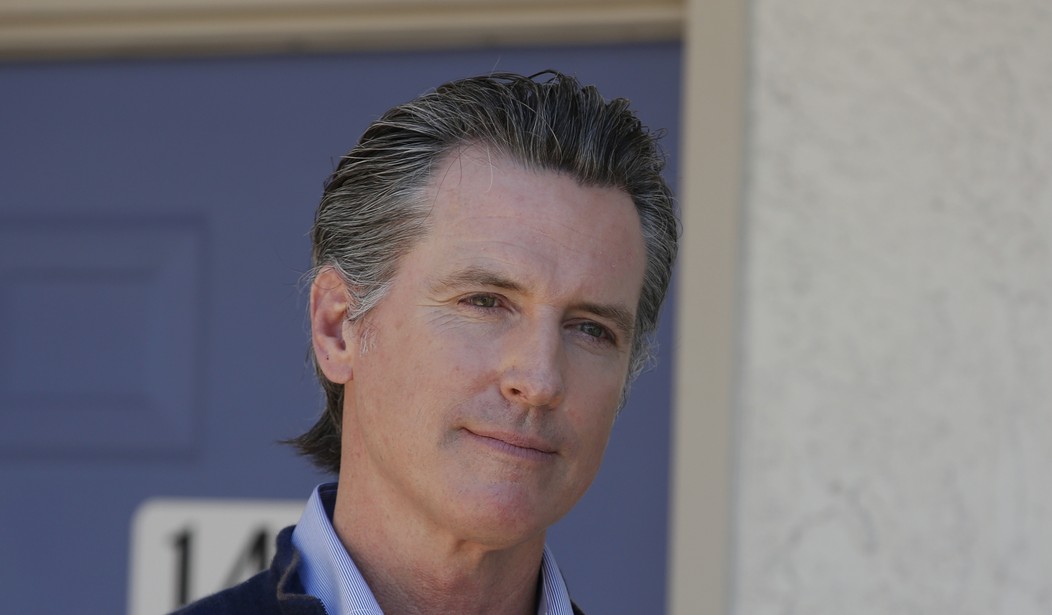Wyatt Totte, 13, and his dog died huddled together in a car, when they sought safety from the flames. His grandmother died with them, as his mother stood frantically tried to save them. That Oregon tragedy has drawn the most national publicity, but Californians have experienced equally heart-breaking nightmares. The Bear Fire destroyed Camp Okizu, a pediatric center that hosts 700 kids each year. “Our hearts have been in our throats all day,” the organization said.
Only a National Guard chopper airlift saved the lives of 214 people trapped near Mammoth Pool Reservoir. Firefighters braved steep terrain to save the tiny town of Shaver Lake. Big Creek resident Toby Walt said that “words cannot even begin to describe the devastation” of that remote hamlet as searing flames burned down half the homes,” but half were saved.
California’s current Governor Newsom absolves himself of personal responsibility by blaming the fires on climate change. Newsom has proven inconsistent, and failed to rally the human, economic and technological resources of the world’s fifth largest economy to decisively confront the problem. Blaming worldwide conditions are not going to solve this problem; I’ve been solving real problems for 40 years in the private sector where I didn’t have the luxury of the blame game – I had to get solutions that worked.
Yes, climate change presents a challenge. We need a full public debate on how to best address it. Californians need fire control action now; solutions, not excuses.
Here are two ideas that can make a difference and save lives.
First, create, fund and deploy a true Fire Attack Air Force to attack the inferno the way our military attacks an enemy: use overwhelming force, agile and adaptable tactics, amass the right resources, mobilize allies and deploy them strategically. Air attack cannot single-handedly stop a fire. But using water and retardants, it can help contain a fire if deployed as soon as a fire breaks out, slow its movement, and help open a corridor of escape for trapped residents. They can build a fire-line around flames. Planes can reach areas too hot and dangerous for fire crews to work in. It is critical to have this overwhelming force applied immediately on a fire before it builds into an uncontrollable inferno.
Recommended
California boasts some of the best, most seasoned firefighters in the country. That goes for pilots. View footage of a helicopter dropping water or fixed wing aircraft like a DC-10 tanker soaring low over the landscape and emptying a bellyful of 12,000 gallons of water or retardant in eight seconds. It’s hard to quantify the impact, but sensible people agree that it helps.
What’s frustrating is watching only a single helicopter or plane dropping their loads. Imagine the impact if we deployed an air armada of 60 craft over a targeted area. They might not put out a fire, but massive bombardment would make a difference and certainly would slow progress enough for firefighters on the ground to succeed. It could contain damage and protect escape routes.
This idea is no pipe dream. California boasts some of the best. These firefighters are incredibly brave. Yet CalFire is today under-staffed and under-budgeted. That’s the product of unimaginative, incompetent leadership.
Some complain that an air attack force is expensive. What value do they place on a human life? A family or a community destroyed? Let’s shift priorities. We’re wasting over $100 billion dollars on a high-speed train of limited value whose costs keep ballooning. Why tolerate that? We need to be agile, flexible and adaptable.
Let’s also get aircraft into the air earlier. Current policy allows aircraft to launch after 10:00 a.m. But experts tell us that fires are more effectively attacked very early in the morning. We must balance pilot safety and effectiveness. But our pilots are capable. We owe them our deepest thanks.
Such action may or may not save a Camp Okizu or Big Creek, but it would improve their chances, and may well save future lives.
A second idea is understanding what is plausible. Battling California’s wildfires is not question of resources alone. We need good “generals” and smart strategy. Land and homeowners have done everything they can to prepare, but fire does not respect property lines. Roughly 129 million trees died on California’s federal, state and private lands between 2010 and 2017, according to one analysis. And yet state and federal authorities failed to devote the resources to address this unprecedented die-off. The ill-conceived policies that undermine sound forest management policies to safeguard land, property and above all, lives, should be swept away like deadwood.
Wildfire requires military-minded resolve and attack. Assembling a modern, dedicated California Fire Air Attack Force is a key to winning this war. We can win the battle and the war. That starts with demanding and having the right leadership.
John Cox is a former Republican California gubernatorial candidate and founder of C.H.A.N.G.E. CA.

























Join the conversation as a VIP Member